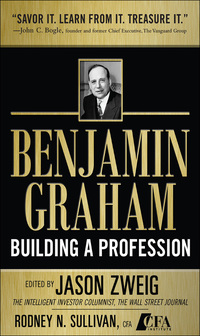Answered step by step
Verified Expert Solution
Question
1 Approved Answer
Suppose a beverage company is considering adding a new product line. Currently the company sells apple juice and they are considering selling a fruit drink.
| Suppose a beverage company is considering adding a new product line. | ||||||
| Currently the company sells apple juice and they are considering selling a fruit drink. | ||||||
| The fruit drink will have a selling price of $1.00 per jar. The plant has excess capacity in a | ||||||
| fully depreciated building to process the fruit drink. The fruit drink will be discontinued in four years. | ||||||
| The new equipment is depreciated to zero using straight line depreciation. The new fruit drink requires | ||||||
| an increase in working capital of $25,000 and $5,000 of this increase is offset with accounts payable. | ||||||
| Projected sales are 150,000 jars of fruit drink the first year, with a 20 percent growth for the following years. | ||||||
| Variable costs are 55% of total revenues and fixed costs are $10,000 each year. The new equipment costs | ||||||
| $195,000 and has a salvage value of $25,000. | ||||||
| The corporate tax rate is 35 percent and the company currently has 1,000,000 shares of stock outstanding | ||||||
| at a current price of $15. The company also has 50,000 bonds outstanding, with a current price of $985. The | ||||||
| bonds pay interest semi-annually at the coupon rate is 6%. The bonds have a par value of $1,000 and will | ||||||
| mature in twenty years. | ||||||
| Even though the company has stock outstanding it is not publicly traded. Therefore, there is no publicly | ||||||
| available financial information. However, management believes that given the industry they | ||||||
| are in the most reasonable comparable publicly traded company is Cott Corporation (ticker symble | ||||||
| is COT). In addition, management believes the S&P 500 is a reasonable proxy for the market portfolio. | ||||||
| Therefore, the cost of equity is calculated using the beta from COT and the market risk premium based on the | ||||||
| S&P 500 annual expected rate of return. (We calculated a monthly expected return for the market | ||||||
| in the return exercise. You can simply multiply that rate by 12 for an expected annual rate on the | ||||||
| market.) The WACC is then calculated using this information and the other information provided | ||||||
| above. Clearly show all your calculations and sources for all parameter estimates used in the WACC. | ||||||
| Required | ||||||
| 1. Calculate the WACC for the company. | ||||||
| 2. Create a partial income statement incremental cash flows from this project in the | ||||||
| Blank Template worksheet using the tab below. | ||||||
| 3. Enter formulas to calculate the NPV by finding the PV of the cash flows over the next four years. | ||||||
| (You can either use the EXCEL formula PV() or use mathmatical formula for PV of a lump sum.) | ||||||
| 4. Set up the EXCEL worksheet so that you are able to change the parameters in E3 to E12. | ||||||
| Run three cases best, most likely, and worst case where the growth rate is 30%, 20%, and 5%, | ||||||
| respectfully. | ||||||
| 5. Create a NPV profile for the most likely case scenario. (See NPV Calculation tab below.) | ||||||
| 6. State whether the company should accept or reject the project for each case scenario. | ||||||
Step by Step Solution
There are 3 Steps involved in it
Step: 1

Get Instant Access to Expert-Tailored Solutions
See step-by-step solutions with expert insights and AI powered tools for academic success
Step: 2

Step: 3

Ace Your Homework with AI
Get the answers you need in no time with our AI-driven, step-by-step assistance
Get Started


